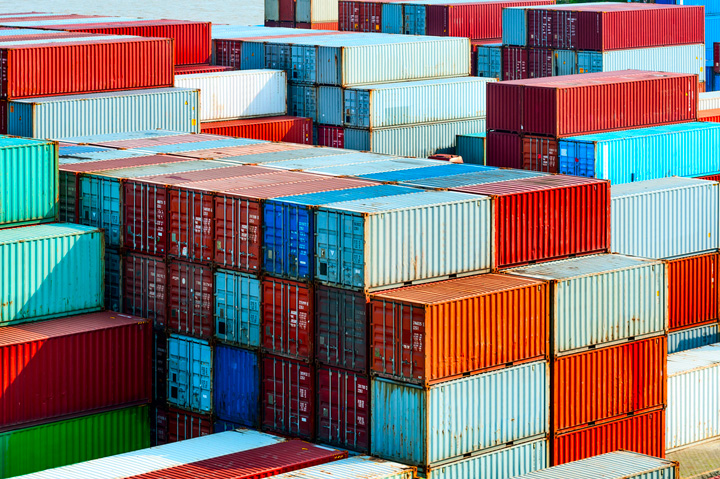News August 05, 2022
Port Congestion Concerns Rise Amid Container Buildup
Logjams of ships and cargo at key ports, like that of Los Angeles, can delay inventory replenishment in the promo products market and other industries.
When it comes to port and shipping congestion, it could be a case of déjà vu all over again.
Speaking with CBS News, the executive director of the Port of Los Angeles, Gene Seroka, said cargo containers bearing imported products are once more stacking up on the docks of America’s busiest container port.
“There are about 35,000 containers that are designated for rail on our docks right now,” Seroka told CBS. “A normal day looks more like 9,000 units.”

A dearth of railroad workers, inadequate levels of rail cars and some importers neglecting to remove their goods from the docks in a timely fashion is reportedly fueling the pileup.
Unions for rail workers are currently engaged in contentious contract negotiations with rail lines.
Part of the worker frustration stems from what they say has been a large reduction in their workforce by the railroads. The rail lines have reportedly lost about one-fifth of their employees over the last three years – much of that due to their own cuts aimed at streamlining operations and achieving cost-savings.
In mid-July, President Joe Biden appointed an emergency board tasked with helping resolve disputes between freight rail carriers and the rail worker unions. The move prevents a strike for at least a couple of months, but doesn’t necessarily do anything to improve rail carrier efficiency in the interim. Rail lines say they’ve been hiring and are prepared to handle volumes, asserting that container backup issues go beyond them.
Regardless, if the container backup continues unabated at the Port of Los Angeles, it could lead to import-bearing ships again being stalled en masse at anchor off-shore, waiting to unload. (Already, congestion is mounting at East Coast ports, where more importers have sent shipments this year amid concerns about West Coast port issues.)
Logjams of ships at West Coast ports have greatly reduced from heights seen earlier in the COVID-19 pandemic. But with what’s traditionally a heavier time of the year for importing in advance of the holiday shopping season, there’s potential for clogs to commence once more amid the container backups.
Such congestion – well over 100 anchored ships at the ports of Los Angeles and Long Beach at times in 2021 – can delay the time it takes for suppliers in the promotional products industry and other importers to receive the products they’re bringing in from overseas.
Those delays make it take longer to replenish inventory, which can lead to stock shortfalls that complicate sourcing for promo distributors and potentially cost them sales if a client’s desired product isn’t available at levels required. Nearly 80% of distributors say they’ve lost an order due to a supply chain issue, which includes inventory gaps, according to Counselor’s 2022 State of the Industry report.
Another dynamic in play is ongoing contract negotiations between the International Longshore and Warehouse Union (ILWU), representing West Coast dockworkers, and the Pacific Maritime Association, representing employers. The workers’ previous contract expired July 1, but there has been no strike or lockout as talks have continued.
Both sides have signaled their intention to keep operations moving at the ports. A work stoppage or slowdown could have drastic consequences for supply chains across industries, including promo.
Notably, progress in the dockworker talks was reported last week when the sides announced they had reached a tentative agreement on health benefits, contingent on other issues in the negotiations. More details were not made public.
“The parties have agreed not to discuss the terms of this tentative agreement as negotiations continue,” said ILWU and PMA officials in a statement. “Maintenance of health benefits (MOB) is an important part of the contract being negotiated between employers represented by the PMA and workers represented by the ILWU.”
